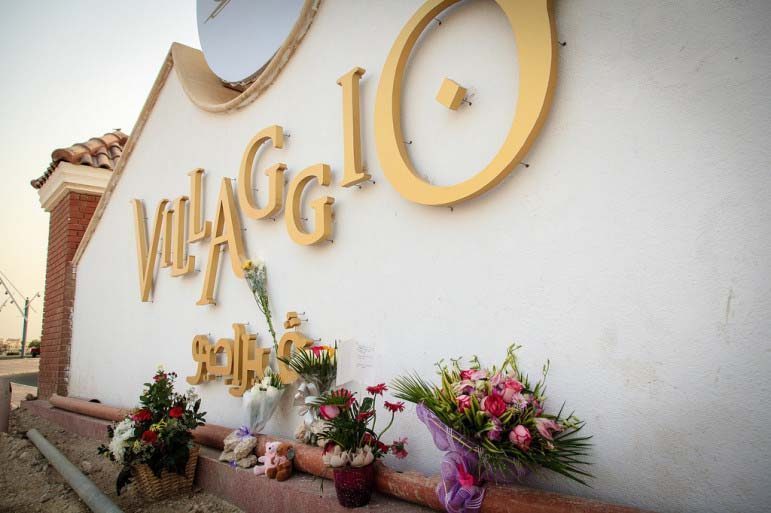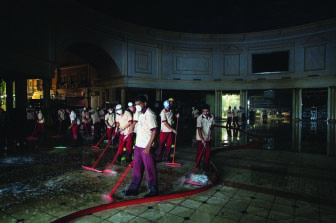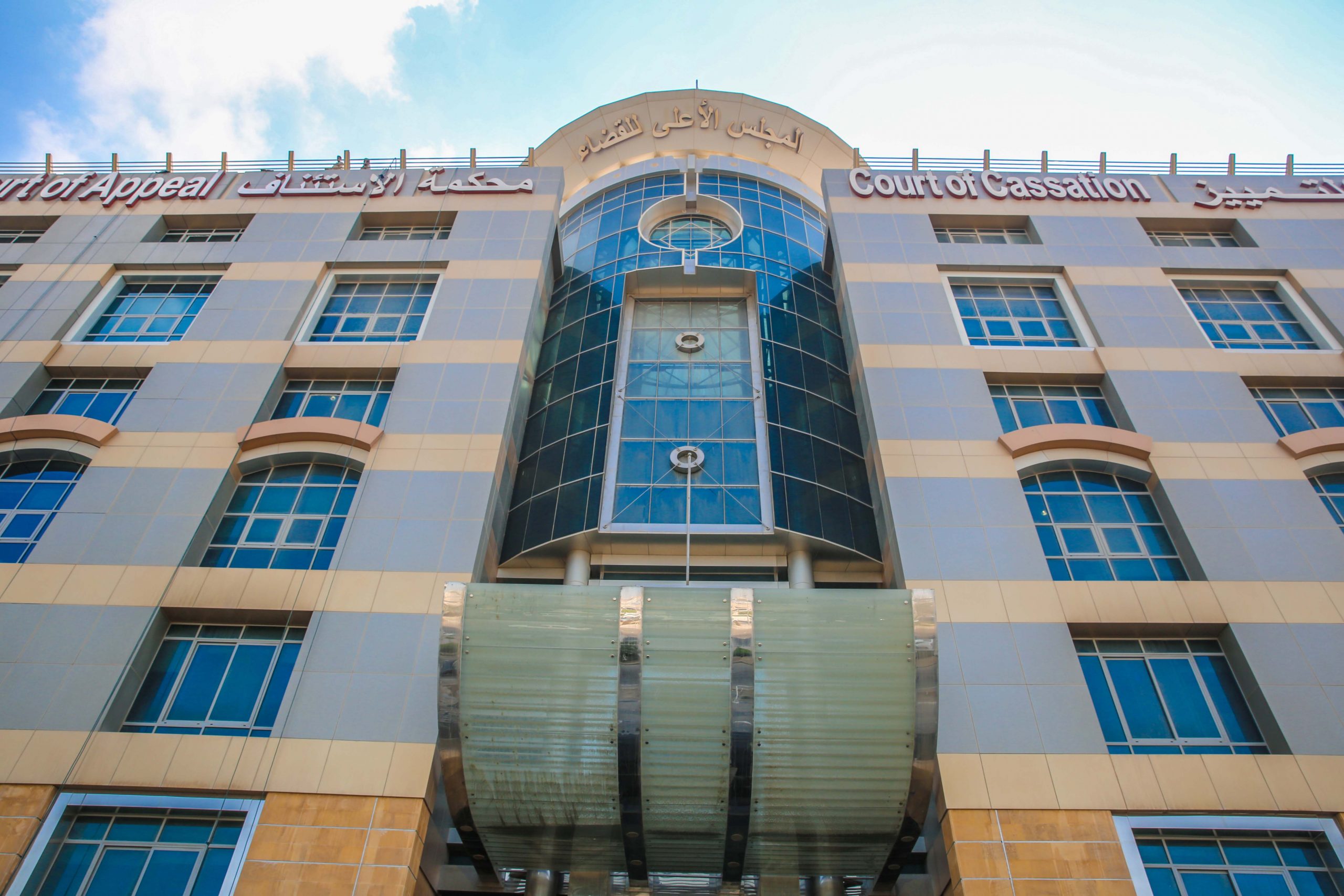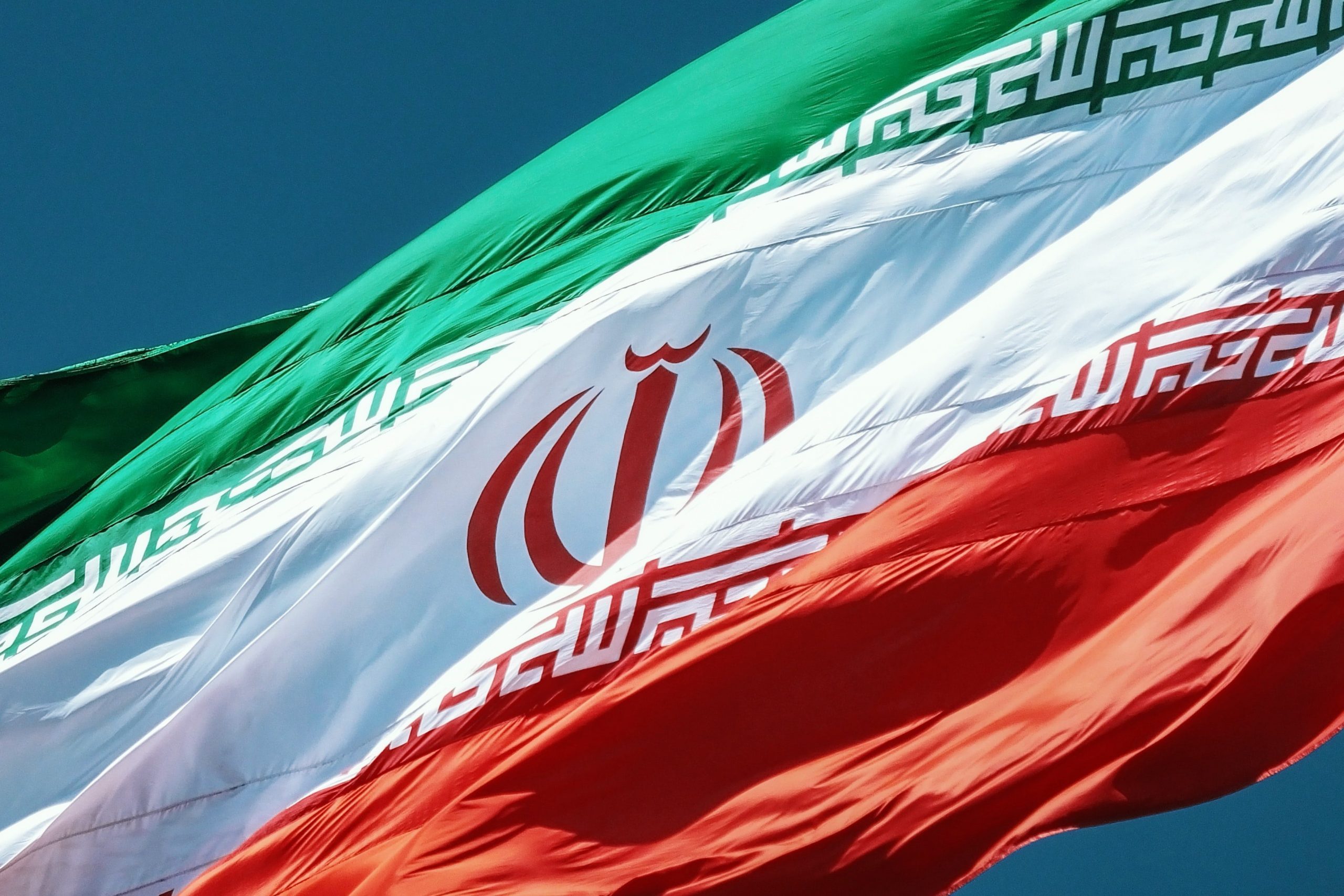
With reporting from Heba Fahmy
Qatar’s Court of Appeal today has thrown out the conviction of five individuals held responsible for the deadly May 2012 Villaggio Mall fire, but found the company that owns the shopping center guilty of involuntary manslaughter.
This means no one will go to jail, but that the families of the victims will be able to seek financial compensation.
The blaze, which started inside a sporting goods store, killed 19 people, including 13 children. All of the victims suffocated inside the Gympanzee daycare, located on the upper floor of the mall.

Some family members of the victims who attended court today stormed out while the presiding judge Abdalrahman al-Sharafi took an unprecedented five hours to read out his verdict, the written version of which runs 154 pages long and clears each defendant of numerous charges.
In his ruling, the judge said he was throwing out all the testimony given by family members of the victims during the initial criminal trial that led to a guilty verdict, arguing that one cannot be a witness and a plaintiff in the same case.
Several relatives of the deceased who spoke to Doha News said they felt appalled that the judge appeared to be blaming the deceased staff of Gympanzee for what happened by saying that a partially blocked emergency exit should not have prevented their escape.
“It made it difficult, not impossible. In the case of a fire, people don’t move slowly. If there is a hurdle in front of you, you (pick up) a child and jump and get out,” al-Sharafi said.
Filipino expat Louie Aban, husband of 29-year-old Maribel Orosco, an accountant killed in the fire, expressed angst at the verdict when speaking to Doha News outside court:
“Why is the court blaming the dead? This just proves to us that Qatar is for Qataris only.”
However, many expats and Qataris alike appeared outraged by today’s verdict.
On Twitter for example, one local worried that another tragedy would occur similar to the Villaggio fire because of the sign the acquittal sends:
@al_watanQatar @buthina2005 بعد هذا القرار لم نعد نأمن على ابنائنا من الذهاب الى المولات لان الدوله لم تعاقب المتسببين في حوادث الحريق !
— عيسى المهندي (@qatari4qatarr) October 26, 2015
Translation: “After this verdict, we no longer feel safe that our children can go to malls because the state hasn’t penalized those who caused the fire.”
Defendants
The decision came nearly two years after the appeals proceedings got underway.

Four people had appealed a June 2013 involuntary manslaughter conviction by Qatar’s lower criminal court, after each was sentenced to the maximum six years in prison. They are:
- Sheikh Ali Bin Jassim Al Thani, co-owner of Gympanzee and Qatar’s Ambassador to Belgium;
- Iman Al-Kuwari, co-owner and manager of Gympanzee;
- Abdul Aziz Mohammed Al-Rabban, Villaggio’s chairman; and
- Tzoulios Tzouliou, Villaggio’s manager.
A municipal worker, Mansour Nasir Fazzaa al-Shahwani, was found guilty of forgery by the lower court and sentenced to five years in jail for providing a license to Gympanzee. His conviction was also overturned.
Though the judge exonerated all the individuals, he found Al-Rabban’s firm, Qatari Company for Real Estate and Commercial Projects (Villaggio), guilty of involuntary manslaughter.
While Al-Rabban will not spend any time in jail, the verdict means the firm and its insurance company will still have to pay blood money compensation to the victim’s family as well as a QR20,000 fine, the maximum allowable amount under this charge.

In 2013, a lower court ordered the defendants’ insurance companies to pay the blood money to each victim’s family, but many of those families continued to wait for the money, pending the appeal’s outcome.
Now, both the insurance company and the families will have the right to sue Sun and Sand Sports, which operated the Nike store where the fire originated.
None of the defendants were in court today to hear the verdict, an absence that angered several of the victims’ family members.
The relatives have been “totally disrespected” by the defendants not showing up, said Zareena Solomon, mother of 15-month-old Umar Emeran.
Appeal arguments
According to an official investigation into the Villaggio fire, the deadly blaze was caused by faulty wiring of a fluorescent light in the mezzanine of Nike.
The report also found that the store’s employees failed to extinguish the fire before it spread.

During the appeal trial, a Civil Defense lieutenant testified that Nike lacked proper government safety licenses, prompting defense lawyers to once again question why prosecutors had not charged the store’s owner or employees alongside the other defendants.
However, the key question during many of the sessions was whether Gympanzee was an improperly licensed nursery, as prosecutors and several parents argued, or a drop-in recreation area for children as the co-owners’ defense attorney asserted.

The distinction matters, parents of the victims previously told Doha News, because Civil Defense officials could have worked to rescue the young children more quickly had they known they were inside when the fire first broke out.
Additionally, the onus on Gympanzee was lower because rules for activity centers are more lenient than for nurseries – activity centers can be located on an upper story of a building, for example.
In his ruling, al-Sharafi said all the evidence suggesting Gympanzee was a nursery was inadmissible hearsay or included witnesses doing their own deductions.
Instead, he concluded that it was an entertainment center, clearing its operators of negligence charges.
He based this on the assessment of the municipal employee who chose to license it as an entertainment center after co-owner Al Thani described the services it would offer and showed pictures of the games and toys that would be included in the facility.
“No one takes a 12-year-old to a nursery,” he said, referring to the fact that many mall shoppers frequently dropped their children off at Gympanzee for one or two hours at a time, and that the daycare marketed itself as being open to kids ages 12 and under.

He did not take into account, however, that the most of the parents of the deceased children paid the center monthly to watch the kids for set hours of the day.
Regardless, as today’s verdict was read out, one parent said the debate missed the bigger picture.
“It doesn’t matter what (Gympanzee) was. This is a case of negligence,” Solomon said.
Mall safety
During the trial, defense lawyers sought to portray the Villaggio fire as no different than other blazes in the country, except that it received extensive media coverage.
Nevertheless, questions were raised over whether the mall’s fire suppression systems were properly working the day of the incident, especially as reports emerged that showed some of the shopping center’s water pumps were in need of repair.

Defense lawyers countered that the faulty water pumps in question fed the mall’s outdoor irrigation system, rather than firefighting equipment.
The attorney representing the mall manager, Tzouliou, also said the lower court was wrong in concluding that the shopping center’s fire hoses were too short.
Also during the appeal hearings, Civil Defense witnesses testified that the mall continued to operate under a valid license even though inspectors raised concerns about the flammable and toxic characteristics of the mall’s paint and decorations prior to its 2006 opening, as well as in a review two years later.
However, the judge was critical of the investigation conducted by Civil Defense and the “contradictory” testimony given by the department’s employees.

He said the pumps were working and that the concerns about the mall’s decorations should have never been raised in court because they were contained in internal documents.
Instead, the judge relied on an investigation conducted by a firm hired by Al-Rabban that showed the mall’s decorations met safety standards.
He also sarcastically rejected suggestions that the decorations were so flammable that if they caught fire, special firefighting materials or techniques would be required to put it out. Instead, he said he had done his own research showing that water would be sufficient.
“Is using water to fight a fire a special technique now?” the judge asked the court.
Compensation claims
Meanwhile, the multi-million dollar lawsuits filed against Villaggio’s architects, developers, consultants and management firm, in addition to several other companies based in the US and Qatar are ongoing, but have been delayed by defendants failing to show up for hearings.

The Qatar suit is calling for QR280 million (approximately $77 million) in compensation and damages for each of the victims – significantly more than has been sought in other recent civil cases filed in the state.
According to court documents, the lawsuit argues that “no one would have died had everyone carried out their duty” and that the deaths happened because of “human mistakes resulting from laziness, negligence and the desire to cut corners and save expenses.”
The suit also seeks compensation for funeral and burial expenses, medical and legal costs and lost earnings for the past, present and future.

The first year of the appeal hearing was marked by a series of delays caused by defendants failing to show up, changes in judges and requests for more time to prepare from lawyers.
However, it appeared to move more quickly after New Zealand’s prime minister raised the case with Qatar’s Emir during a meeting earlier this year in Turkey.
John Key brought up the issue on behalf of New Zealanders Jane and Martin Weekes, parents of triplets killed in the blaze.
At the time, Sheikh Tamim bin Hamad Al Thani said he was “utterly committed to making sure those who are responsible will be held to account,” Key said.
Several family members of the victims said they want today’s judgment appealed to Qatar’s highest court, the Court of Cassation. However, that decision will be up to prosecutors.
Thoughts?







